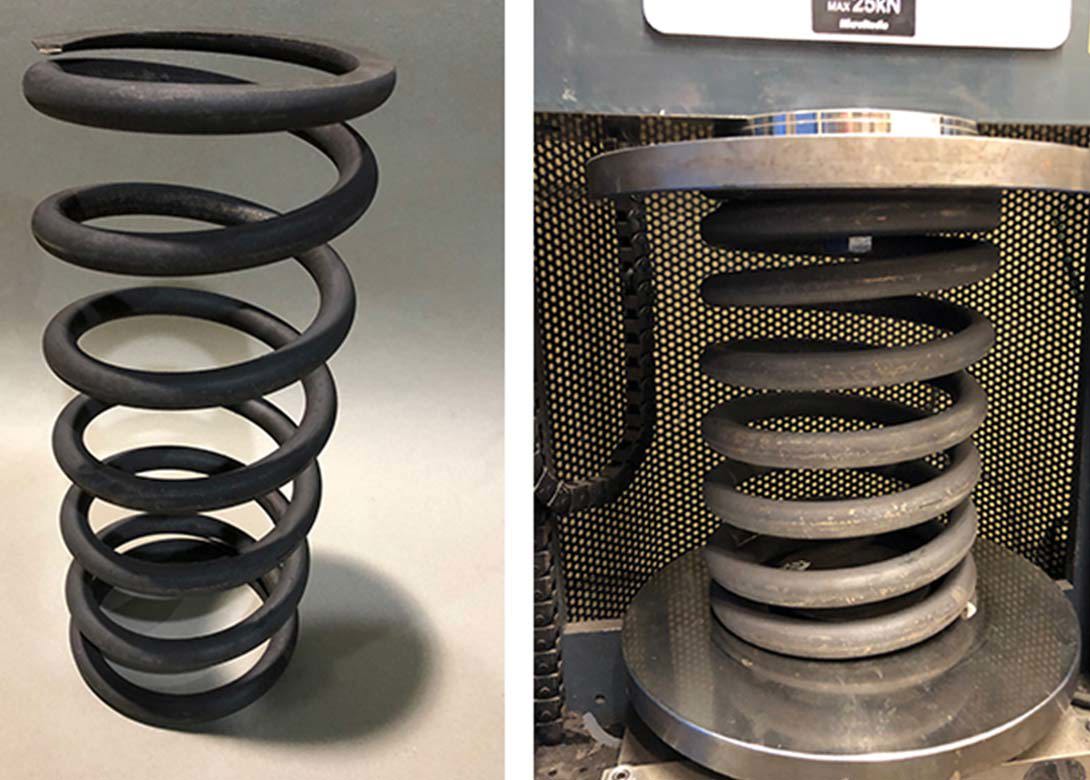
Innovative and progressive research and development is part of Lesjöfors’ DNA. The spring specialists in Sweden have recently made prototypes and tests of springs in a new, cost-effective material that can withstand high temperatures, and test results are very positive.
One of the requests of firm compression springs for high temperature applications origins from the Lesjöfors sales office in the Netherlands, where the customer wanted to replace disc springs with compression springs in an actuator application for large valves. The compression springs would have to work in an environment of around 200-250 degrees Celsius with high demands of strength and relaxation resistance. Furthermore, the springs would have to be ATEX certified which means no explosion risk.
To discuss challenges and possible solutions, the Dutch sales manager André Boskemper contacted Stefan Musslinder, the group’s technical manager and Per Davidsson, technical manager at the factory in Lesjöfors, specialised in the manufacture of large, industrial springs. The company came up with the idea of producing springs in tool steel, which had never been done before. Tool steel is mainly used for industrial tools and the manufacturer is Uddeholm, a company located in the neighboring municipality Hagfors.
The traditional materials used for springs working in high temperature applications are made either in stainless steel or super alloys such as Inconel or Nimonic. The disadvantage is that these materials are very costly compared to the tool steel and the strength is fairly low in larger dimensions. The great advantages the team anticipated with tool steel led to a decision of starting prototype manufacturing and tests.
“We manufactured ten springs in tool steel with a weight of about ten kilos each who we then hardened to 50 Rockwell C. We tested the springs’ heat resistance by a setting test to solid length at temperatures between 200 and 300 degrees Celsius. By doing so, we can measure how well the springs’ characteristics withstand high temperatures. The test results are very positive and we look forward to extended tests in longer time-series to investigate long-time relaxation resistance,” commented Stefan Musslinder.

Having spent a decade in the fastener industry experiencing every facet – from steel mills, fastener manufacturers, wholesalers, distributors, as well as machinery builders and plating + coating companies, Claire has developed an in-depth knowledge of all things fasteners.
Alongside visiting numerous companies, exhibitions and conferences around the world, Claire has also interviewed high profile figures – focusing on key topics impacting the sector and making sure readers stay up to date with the latest developments within the industry.





